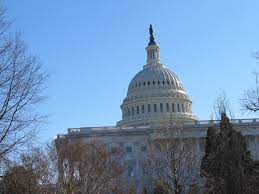The U.S. Senate Committee on Indian Affairs will hold a hybrid listening session, “Public Safety & Justice Resources in Native Communities,” to hear from Native leaders, individuals, and organizations on public safety matters affecting their communities on Wednesday, March 20, 2024.

Committee staff is interested in receiving testimony in the following issue areas, including but not limited to –
- Law enforcement officer issues, including cross-deputization, recruitment, retention, and benefits parity;
- Corrections and detention center facilities funding and maintenance;
- Investigative tools, such as equipment, data, and training resources;
- Tribal courts and justice systems; and
- P.L. 280 issues.
Comments will inform the Committee’s current work and serve as a resource for future discussions on public safety in Native communities.
The Committee will also accept written comments until April 12, 2024. Comments may be submitted to [email protected].
Event Details:
WHAT:
Senate Committee on Indian Affairs Listening Session on Public Safety.
REGISTRATION:
Pre-register for the listening session here and indicate your preference to provide oral comments or listen only.
HOW:
Participation may be in person (Dirksen Senate Office Building 628) or via WebEx. Pre-registration for online participation is encouraged, but not required.
WHEN:
WEDNESDAY, March 20, 2024 at 2:30 p.m. – 4:30 p.m. ET
LIVESTREAM:
Live video of the event will be available here.
More Stories Like This
Native News Weekly (August 25, 2024): D.C. BriefsUS Presidents in Their Own Words Concerning American Indians
Haaland Meets with Southern New Mexico Law Enforcement on Public Safety Priorities
This Day in History – Dec. 26, 1862: 38 Dakota Men Executed by Order of Abraham Lincoln
Merry Christmas 2025
Help us defend tribal sovereignty.
At Native News Online, our mission is rooted in telling the stories that strengthen sovereignty and uplift Indigenous voices — not just at year’s end, but every single day.
Because of your generosity last year, we were able to keep our reporters on the ground in tribal communities, at national gatherings and in the halls of Congress — covering the issues that matter most to Indian Country: sovereignty, culture, education, health and economic opportunity.
That support sustained us through a tough year in 2025. Now, as we look to the year ahead, we need your help right now to ensure warrior journalism remains strong — reporting that defends tribal sovereignty, amplifies Native truth, and holds power accountable.
 The stakes couldn't be higher. Your support keeps Native voices heard, Native stories told and Native sovereignty defended.
The stakes couldn't be higher. Your support keeps Native voices heard, Native stories told and Native sovereignty defended.
Stand with Warrior Journalism today.
Levi Rickert (Potawatomi), Editor & Publisher


